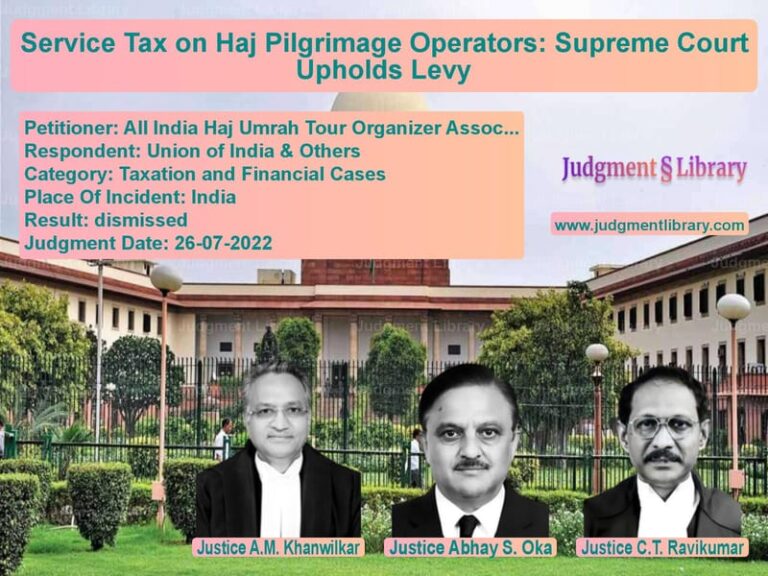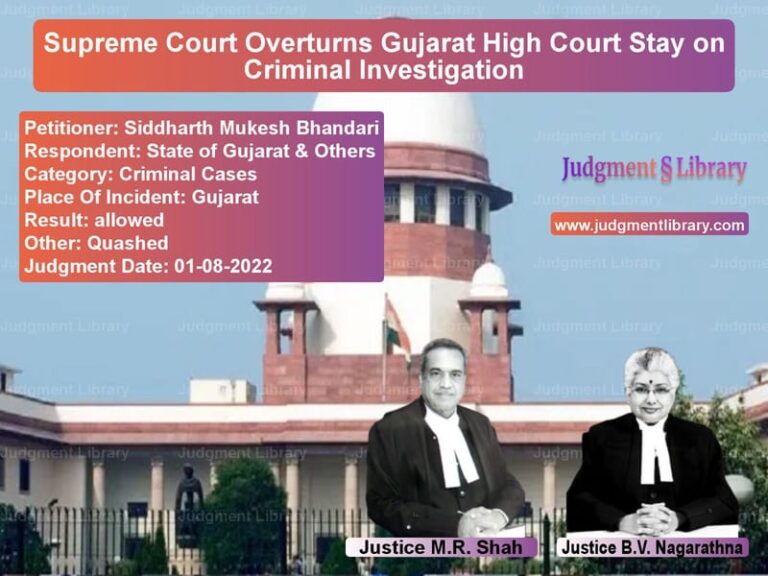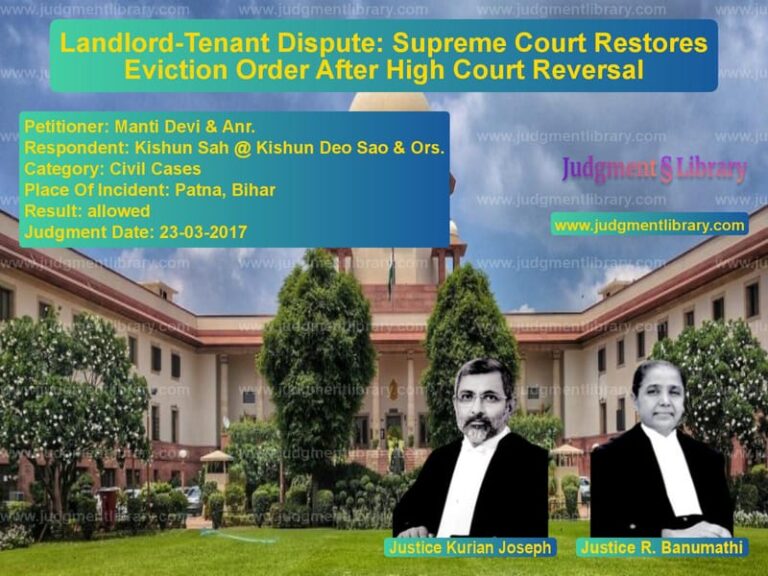Supreme Court Upholds Organized Crime Charges in Gauri Lankesh Murder Case
The Supreme Court of India, in its recent judgment, ruled in favor of the complainant, Kavitha Lankesh, upholding the application of the Karnataka Control of Organized Crimes Act, 2000 (KCOCA) against accused Mohan Nayak. The case pertained to the assassination of journalist Gauri Lankesh on September 5, 2017, outside her residence in Bengaluru.
Background of the Case
The case emerged when Kavitha Lankesh, the sister of the slain journalist, filed a complaint with the Rajarajeshwari Nagar Police Station, leading to the registration of an FIR under Section 302 of the IPC and the Arms Act. Due to the complexity of the crime and its suspected organized nature, the investigation was handed over to the Special Investigation Team (SIT) on September 6, 2017.
During the investigation, multiple accused were arrested, and evidence pointed towards the operation of an organized crime syndicate. The SIT, after gathering sufficient evidence, sought approval from the Commissioner of Police, Bengaluru City, under Section 24(1)(a) of the KCOCA to invoke organized crime provisions against the accused. This approval was granted on August 14, 2018.
High Court’s Intervention
Accused Mohan Nayak challenged the invocation of KCOCA in the Karnataka High Court. He argued that he was not directly involved in any continuing unlawful activity, and the charge sheet allegations did not attract organized crime under Section 2(e) of the KCOCA. His counsel contended that his inclusion under KCOCA violated his personal liberty under Article 21 of the Constitution of India.
The High Court accepted his plea and quashed the Commissioner of Police’s approval order and the charge sheet filed against him under KCOCA. This ruling was challenged before the Supreme Court by Kavitha Lankesh and the State of Karnataka.
Supreme Court’s Judgment
The Supreme Court, after reviewing the case, reversed the High Court’s decision. The Court made the following key observations:
- The High Court erred in analyzing the matter by focusing on the involvement of the individual accused rather than examining the larger organized crime syndicate operating behind the assassination.
- It was not necessary for an accused to have multiple previous charge sheets against him to be charged under KCOCA if he was involved in a larger syndicate engaged in organized crime.
- The prior approval granted by the Commissioner of Police was based on material evidence indicating the presence of an organized crime syndicate that had conspired to assassinate individuals holding opposing ideologies.
- The material collected by the SIT, including training in arms, recruitment of members, and planned assassinations, clearly pointed towards a well-organized and systematic operation that fell within the scope of organized crime.
- The judgment emphasized that KCOCA provisions are meant to target entire syndicates rather than just individuals, and the High Court had wrongly focused on the requirement of multiple charge sheets against Nayak.
Legal Implications of the Ruling
This ruling sets an important precedent in cases involving organized crime and terror networks. The Supreme Court has clarified that organized crime laws must be interpreted to address the larger syndicate rather than focusing narrowly on individual prior offenses.
By allowing the appeal, the Supreme Court reinforced that prior approval under KCOCA was correctly granted and that the charges against Mohan Nayak under the Act were legally valid. The judgment strengthens the case against the accused involved in the assassination of Gauri Lankesh and ensures that organized crime laws are effectively implemented.
Conclusion
The Supreme Court’s decision reinstates the organized crime charges against Mohan Nayak and allows the prosecution to proceed under KCOCA. This judgment highlights the need for a broad interpretation of organized crime laws, especially in cases involving premeditated attacks orchestrated by criminal syndicates.
Petitioner Name: Kavitha Lankesh.Respondent Name: State of Karnataka & Ors..Judgment By: Justice A.M. Khanwilkar, Justice Dinesh Maheshwari, Justice C.T. Ravikumar.Place Of Incident: Bengaluru, Karnataka.Judgment Date: 21-10-2021.
Don’t miss out on the full details! Download the complete judgment in PDF format below and gain valuable insights instantly!
Download Judgment: kavitha-lankesh-vs-state-of-karnataka-&-supreme-court-of-india-judgment-dated-21-10-2021.pdf
Directly Download Judgment: Directly download this Judgment
See all petitions in Murder Cases
See all petitions in Terrorist Activities
See all petitions in Judgment by A M Khanwilkar
See all petitions in Judgment by Dinesh Maheshwari
See all petitions in Judgment by C.T. Ravikumar
See all petitions in allowed
See all petitions in Remanded
See all petitions in supreme court of India judgments October 2021
See all petitions in 2021 judgments
See all posts in Criminal Cases Category
See all allowed petitions in Criminal Cases Category
See all Dismissed petitions in Criminal Cases Category
See all partially allowed petitions in Criminal Cases Category







